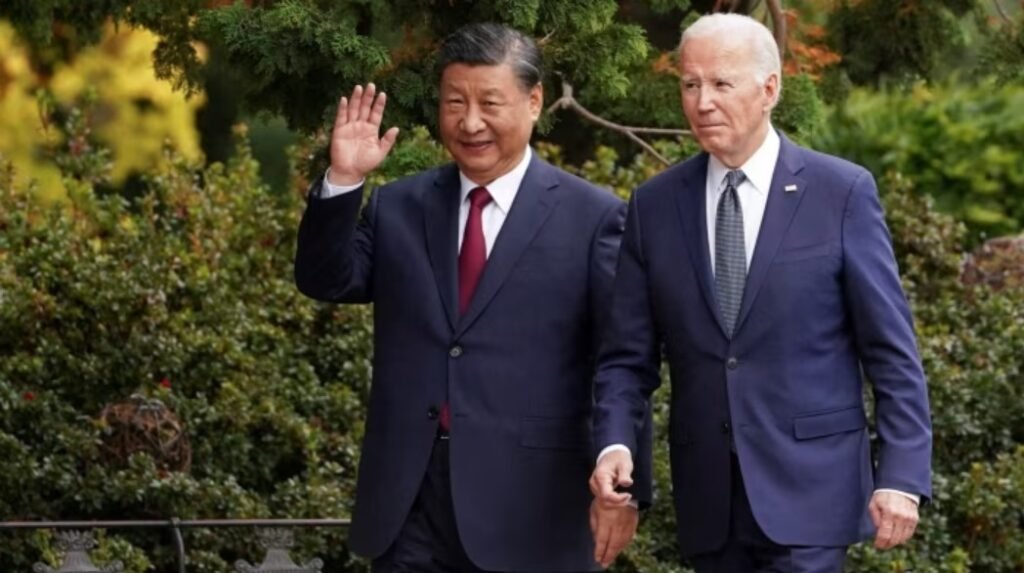In a pivotal moment for international diplomacy, President Joe Biden of the United States engaged in a comprehensive phone conversation with Chinese President Xi Jinping. The dialogue, which marks their first discussion since their encounter at the Asia-Pacific Economic Cooperation Summit in California last November, underscores the delicate intricacies of US-China relations. This nearly two-hour-long call, described by officials as both candid and constructive, delves into various aspects of bilateral, regional, and global significance, illustrating a concerted effort to alleviate tensions between the world’s leading economies.
The Primary Points of Discussion Between Xi Jinping and Biden
Central to their conversation was the issue of Taiwan, a perennial flashpoint in US-China relations. With the inauguration of Taiwan’s President-elect Tsai Ing-wen impending in May, President Biden underscored the importance of maintaining peace and stability across the Taiwan Strait. Xi responded emphatically, reinforcing Taiwan as Beijing’s “uncrossable red line,” a statement reflecting China’s longstanding position on the island as an integral part of its territory.
Another focal point was the increasing hostilities in the South China Sea, particularly between China and the Philippines. Recent confrontations, including an incident where the Chinese Coast Guard used water cannons against a Filipino supply vessel, have escalated tensions. Biden reiterated the imperative of peace, rule of law, and freedom of navigation in this strategically vital region.

Economic Frictions and Allegations of Suppression
The dialogue also ventured into contentious economic territories, particularly the Biden administration’s bans on high-tech exports to China. Xi criticized these measures as counterproductive to economic stability and indicative of an attempt to stifle China’s technological advancement. Despite these accusations, Biden justified the restrictions as essential safeguards for the United States’ national security, vowing to prevent advanced technologies from being misappropriated.
Social Media, Security, and Climate Change: Areas of Agreement and Dispute
The leaders touched upon the contentious issue of the Chinese-owned social media app, TikTok. Biden expressed support for Congress’s move to potentially ban the app, citing concerns for American data security. Furthermore, they discussed the ongoing conflict in Ukraine, with Biden voicing apprehensions regarding China’s assistance to Russia’s defense capabilities.

Despite the divergences, the conversation did find commonality in the mutual interest to enhance cooperation on climate change and artificial intelligence. Both leaders agreed on the significance of continued dialogue on these fronts, echoing their discussions from the Woodside Summit.
Read More:- Who were the KGB? [Explained]
A Diplomatic Path Forward
This conversation arrives amid a backdrop of concerted diplomatic efforts to de-escalate US-China tensions, with significant forthcoming visits by US Treasury Secretary Janet Yellen and Secretary of State Antony Blinken to Beijing. Both nations recognize the imperative of leader-level communication in managing a relationship as complex and fraught with tension as that between the US and China.
While it’s unclear if this landmark discussion will herald a new epoch in US-China relations, it undoubtedly sets a precedent for open dialogue on critical issues affecting both powers. Whether this leads to a thaw in tensions remains to be seen, but the willingness to engage reflects a recognition of the global stakes at play.
Do you like Anime? Go to Pop Media Pulse
